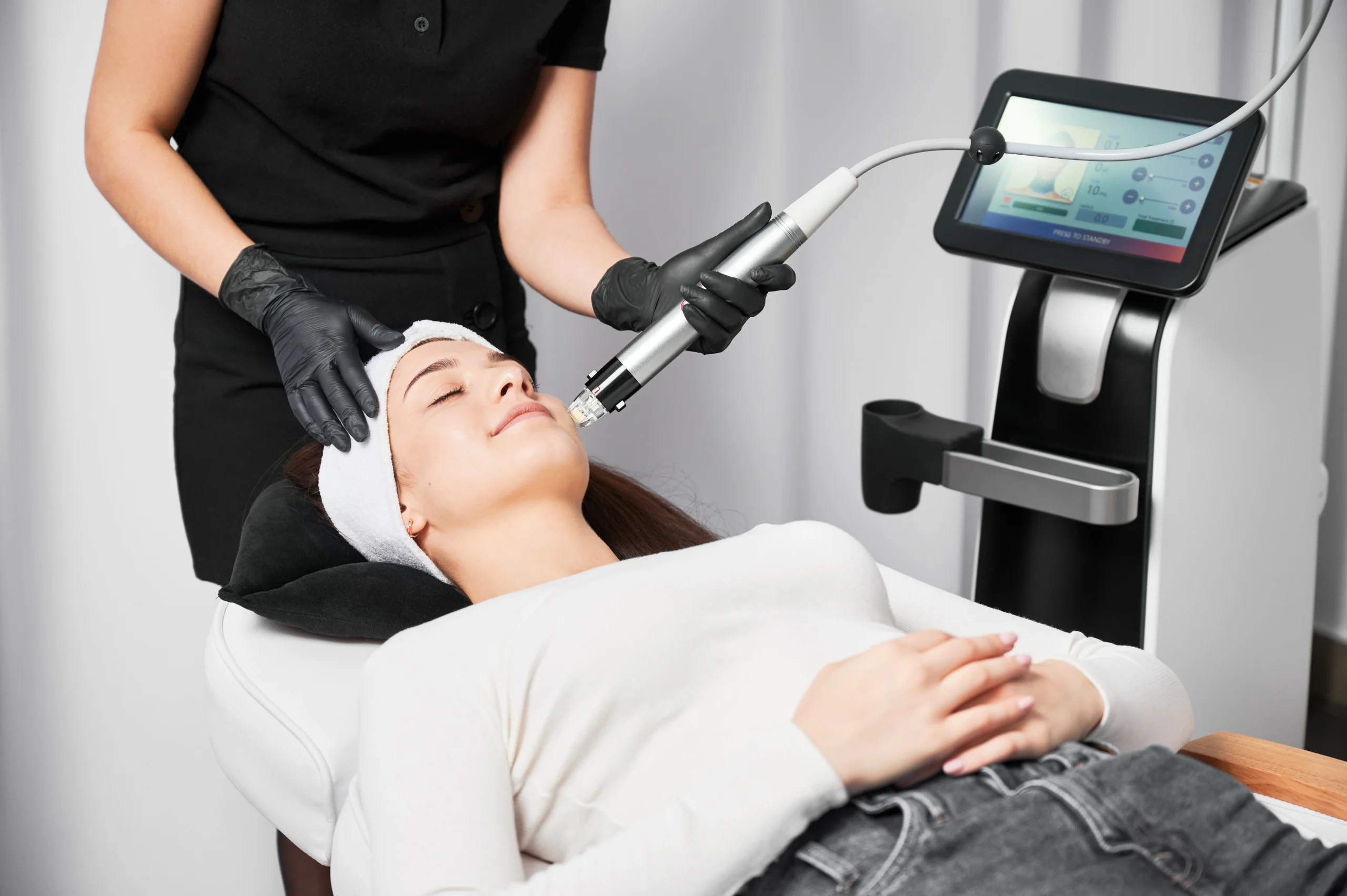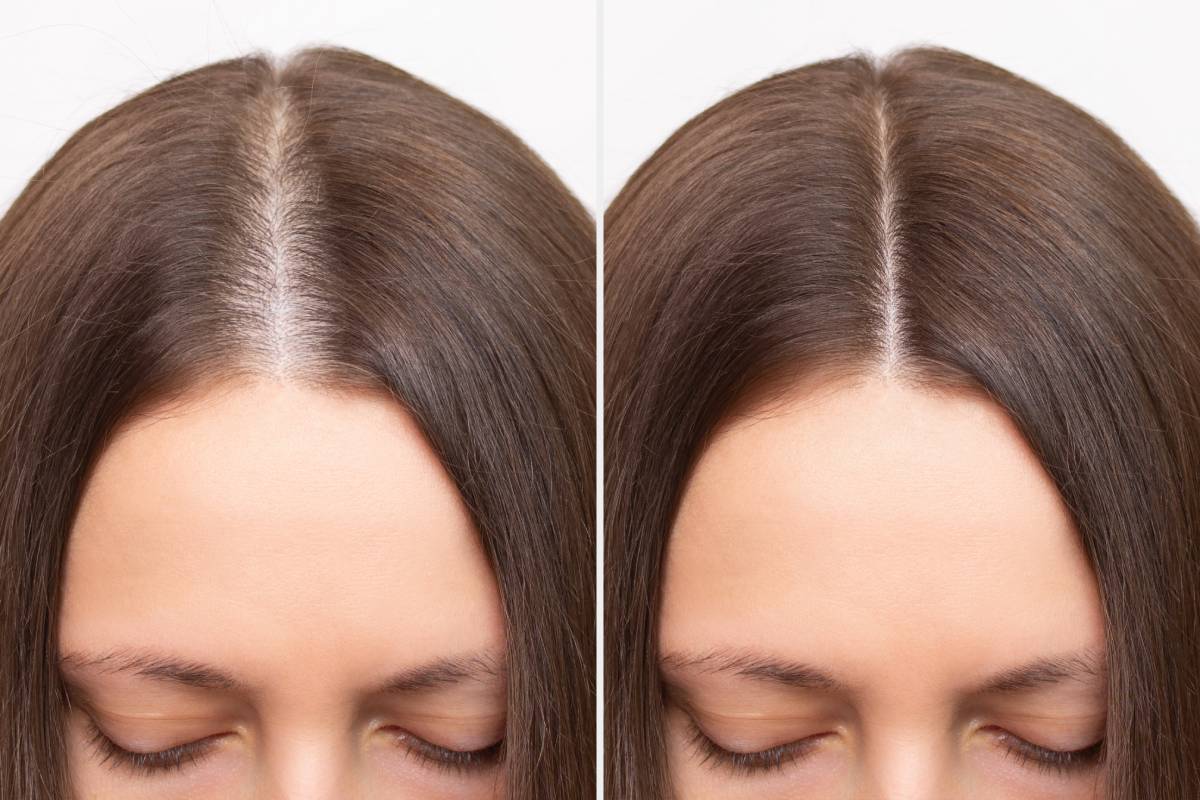Skin pigmentation issues are a common concern for many individuals, affecting not only their appearance but often their self-confidence as well. From sun spots and melasma to post-inflammatory hyperpigmentation, these conditions can be challenging to treat. However, advancements in aesthetic medicine have revolutionized the approach to managing skin pigmentation, with laser therapy emerging as a frontrunner in effective treatment options.
At Modern Medical Aesthetics, we’ve seen firsthand the transformative power of laser therapy in addressing various pigmentation concerns. In this article, we’ll explore the role of laser therapy in skin pigmentation treatment, its mechanisms, benefits, and considerations.
Understanding Skin Pigmentation
Before delving into laser therapy, it’s crucial to understand the basics of skin pigmentation. Melanin, the pigment responsible for skin color, is produced by cells called melanocytes. Various factors can lead to an overproduction or uneven distribution of melanin, resulting in pigmentation issues such as:
- Sun spots (solar lentigines)
- Melasma
- Post-inflammatory hyperpigmentation
- Freckles
- Age spots
These conditions can be triggered by sun exposure, hormonal changes, inflammation, or genetic predisposition.
The Science Behind Laser Therapy for Pigmentation
Laser therapy works on the principle of selective photothermolysis, where specific wavelengths of light target melanin in the skin without damaging surrounding tissues. The laser energy is absorbed by the pigmented areas, causing controlled damage to the melanin-containing cells. This process triggers the body’s natural healing response, leading to the removal of damaged pigmented cells and the production of new, healthier skin cells.
Different types of lasers are used for pigmentation treatment, including:
- Q-switched lasers: Ideal for treating dark spots and tattoos
- Fractional lasers: Effective for overall skin rejuvenation and treating melasma
- Picosecond lasers: Offer faster treatment times and can target a wider range of pigmentation issues
The choice of laser depends on the specific pigmentation concern, skin type, and overall treatment goals.
Benefits of Laser Therapy for Pigmentation
Laser therapy offers several advantages over traditional pigmentation treatments:
1. Precision
Lasers can target specific pigmented areas without affecting surrounding skin.
2. Non-invasive
Unlike surgical options, laser treatments don’t require incisions or extensive downtime.
3. Customizable
Treatment parameters can be adjusted to suit individual needs and skin types.
4. Versatility
Different laser types can address various pigmentation concerns effectively.
5. Stimulation of collagen production
Many laser treatments have the added benefit of promoting collagen synthesis, improving overall skin texture and tone.
6. Long-lasting results
When combined with proper skincare and sun protection, results from laser therapy can be long-lasting.
The Laser Treatment Process
At Modern Medical Aesthetics, we follow a comprehensive approach to laser pigmentation treatment:
1. Consultation and Assessment
Our specialists evaluate your skin type, pigmentation concerns, and medical history to determine the most suitable laser treatment.
2. Preparation
We may recommend pre-treatment skincare regimens to optimize results and minimize risks.
3. Treatment Session
The actual laser treatment is typically quick, lasting anywhere from 15 to 60 minutes, depending on the area being treated.
4. Post-Treatment Care
We provide detailed instructions for post-treatment care to ensure optimal healing and results.
5. Follow-up Sessions
Depending on the severity of pigmentation, multiple sessions may be required for best results.
Considerations and Potential Side Effects
While laser therapy is generally safe and effective, it’s important to be aware of potential side effects and considerations:
1. Temporary redness and swelling
These are common immediately after treatment and typically subside within a few days.
2. Risk of hyperpigmentation or hypopigmentation
In rare cases, laser treatment may cause darkening or lightening of the treated area, especially in darker skin tones.
3. Sun sensitivity
Treated skin is more susceptible to sun damage, making sun protection crucial post-treatment.
4. Downtime
While minimal, some patients may experience a few days of skin peeling or flaking.
5. Cost
Laser treatments can be more expensive than topical treatments, but often provide more significant and faster results.
Combining Laser Therapy with Other Treatments
To maximize results, laser therapy is often combined with other treatments:
1. Topical treatments
Hydroquinone, kojic acid, or vitamin C serums can enhance and maintain the results of laser therapy.
2. Chemical peels
Light to medium peels can complement laser treatments by providing additional exfoliation and skin renewal.
3. Microneedling
This can help improve product penetration and stimulate collagen production alongside laser therapy.
4. Proper skincare routine
A tailored skincare regimen is crucial for maintaining results and preventing future pigmentation issues.
Advancements in Laser Technology
The field of laser therapy is continually evolving, with new technologies emerging to provide even better results:
1. Dual-wavelength lasers
These combine different laser types for more comprehensive treatment of various pigmentation issues.
2. Nanosecond and picosecond technology
These ultra-short pulse durations offer more precise targeting of pigment with less heat damage to surrounding tissue.
3. Artificial intelligence integration
Some newer laser systems use AI to analyze skin and adjust treatment parameters in real-time for optimal results.
Choosing the Right Provider
The effectiveness and safety of laser pigmentation treatment heavily depend on the skill and experience of the provider. When considering laser therapy, it’s crucial to choose a reputable clinic with qualified practitioners. At Modern Medical Aesthetics, our specialists are trained in the latest laser technologies and have extensive experience in treating various skin types and pigmentation concerns.
The Importance of a Holistic Approach
While laser therapy can be highly effective in treating pigmentation issues, it’s important to address the root causes of pigmentation for long-term management. This includes:
1. Sun protection
Daily use of broad-spectrum sunscreen is crucial in preventing and managing pigmentation.
2. Hormonal balance
For conditions like melasma, which can be hormone-related, addressing underlying hormonal issues may be necessary.
3. Proper skincare
A consistent, tailored skincare routine can help maintain results and prevent future pigmentation problems.
4. Healthy lifestyle
A balanced diet, adequate hydration, and stress management all contribute to overall skin health.
Experience The Future of Pigmentation Treatment at Modern Medical Aesthetics Today!
Laser therapy has revolutionized the treatment of skin pigmentation, offering a safe, effective, and versatile solution for various concerns. As technology continues to advance, we can expect even more precise and customized treatments, potentially with shorter recovery times and even better results.
At Modern Medical Aesthetics, we’re committed to staying at the forefront of these advancements, offering our patients the most effective and innovative solutions for their skin concerns. While laser therapy is a powerful tool in addressing pigmentation issues, it’s important to remember that each individual’s skin is unique. A personalized treatment plan, combined with a holistic approach to skin health, is key to achieving and maintaining clear, even-toned skin.
If you’re struggling with pigmentation issues, laser therapy could be the solution you’ve been looking for. With its ability to target specific areas, stimulate skin renewal, and provide long-lasting results, it’s no wonder that laser treatments have become a go-to option for pigmentation concerns. As always, consult with a qualified professional to determine the best treatment approach for your individual needs and skin type.






